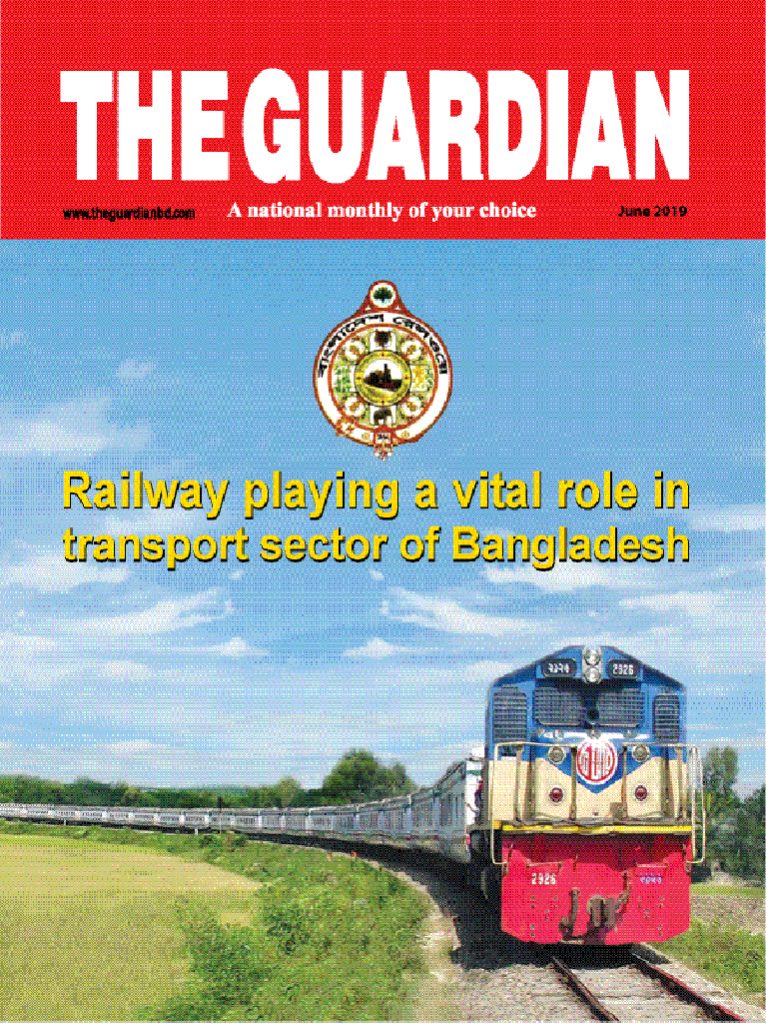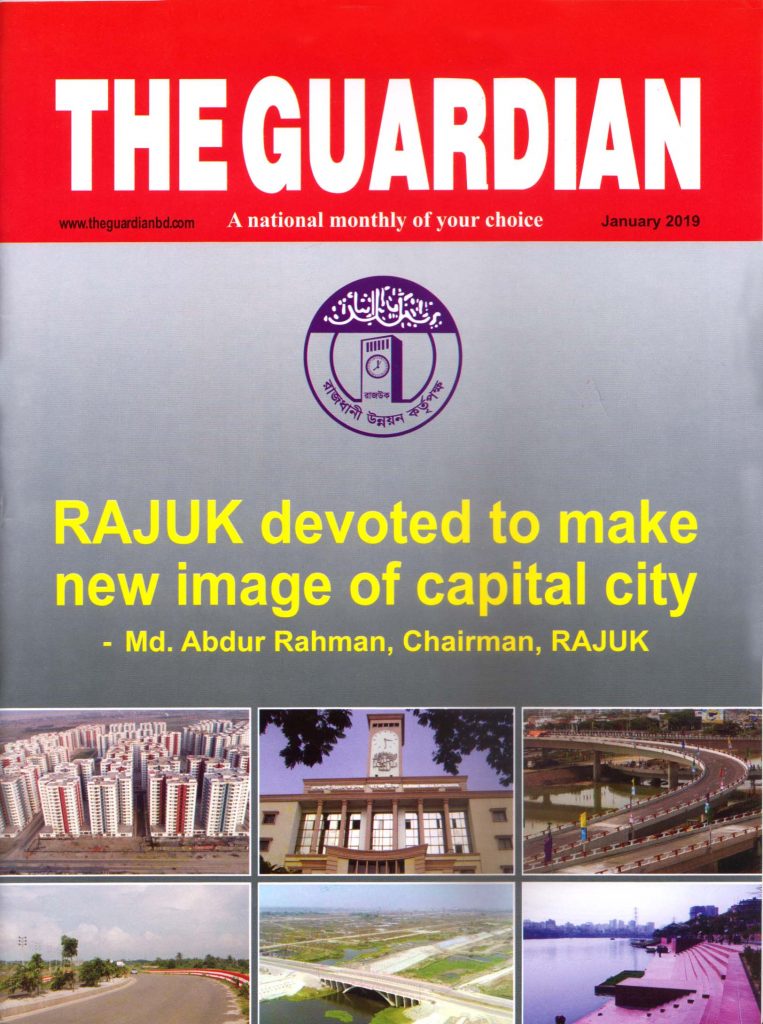Bangladesh Railway is going to introduce a new railway bridge over the river Jamuna parallel to the existing Bangabandhu Bridge. The bridge will improve the capacity and safety of railway transportation in Bangladesh and contribute to efficient logistic network within the country and with neighboring countries in South Asia. This new dedicated railway bridge will be constructed under a project of Bangladesh Railway titled `Bangabandhu Sheikh Mujib Railway Bridge Construction Project` and the name of the structure will be ” Bangabandhu Sheikh Mujib Railway Bridge’. The project is going to be implemented mainly under Japan International Cooperation Agency (JICA) fund.
This Project is termed as Flagship project between Japan & Bangladesh and it is one of the five projects included in the “Japan-Bangladesh Comprehensive Partnership”. After completion of the first feasibility study with support from the Asian Development Bank, Honorable Prime Minister Sheikh Hasina requested Japanese funding for the project when she met Japan’s Prime Minister Shinzo Abe in May 2014. The project was finally approved in the ECNEC meeting on 06 December 2016 at a cost of BDT 9734.07 Crore in which GOB- BDT 2009.75 Crore (20.65%) and JICA project aid-7724.32 Crore (79.35%). The implementation period of the project is 01 July 2016 to 31 December 2023.
The new railway bridge will improve accessibility to the cities between the eastern and western part of the country through increasing the railway network. It will improve the operational efficiency and financial performance of Bangladesh Railway through higher productivity, asset utilization and lowering operational cost. It will contribute to improve connectivity for international freight (container) traffic along the Trans-Asian railway.
This is the first time Bangladesh Railway is going to implement a project to construct Curved Steel Truss Bridge with weathering steel along with Direct Steel Fastening Track (DSFT) over bridge, Steel-Pipe-Sheet-Pile foundation (SPSP-F), Head Hardened rail, Derailment Prevention Grid, etc. new technologies.
The existing Bangabandhu Bridge supports a four-lane highway and a single railway track with restrictions of Axle Load, Speed & train composition. For Instance, the wagon load, either containers or bulk should not exceed a nominal UDL (Uniformly Distributed Load) of 43.7 KN/m, the locomotive should have an empty wagon behind it and at no time shall there be more than one locomotive in the train, the speed on the bridge should be limited to 20km/hr, special clearance provisions should be established, effective means for enforcing the loading and clearance restrictions are to be adopted. Due to these limitations, BR can only operate a limited number of trains over the Bangabandhu Bridge. In the current scenario, 38 trains can run per day with a limited speed at 20 kmph over the existing Bangabandhu Bridge.
With increasing demand for both Rail and Road traffic, the current bridge has become a serious transport bottleneck. To meet increasing national and sub-regional traffic demand, the Government of Bangladesh (GOB) recognizes the urgent need to construct a dedicated railway bridge parallel to the existing Bangabandhu Bridge with the provision of a Dual-Gauge double track. As the Bangabandhu Sheikh Mujib Railway Bridge will be an important link in planned Trans Asian Railway, this railway bridge was considered an important part of the national and future regional and international railway transport networks.
Under the project a dedicated Railway Bridge (approximately 4.8 km) will be constructed with the provision of Dual Gauge double track over the River Jamuna, parallel to and approximately 300m upstream of the existing Bangabandhu Bridge. There will be a provision to facilitate gas transmission pipeline through the bridge.
In addition to the main bridge, approximately 0.05 km railway viaducts; 7.6 km railway approach including bridges and culverts on the railway approach, 1540 sq.m office building, residential buildings (116 sqm XEN residence, 116 sqm AEN residence, 93 sqm SSAE residence, 74 sqm senior staff residence), dormitories for 64 people, 4000 sqm inspection Bungalow, 4925 Sqm railway bridge museum, 195 sqm bridge security building (West), cafeteria, substation, generator house, over water tank with capacity 100000 litres with deep tubewell and gate houses for office, residence, inspection bungalow and museum will be constructed.
Besides these, there will be a renovation & remodeling of the two station yards ( BBE and BBW) on two sides of the bridge for double line operation and modernization of signaling and telecommunication system of the stations.
Oriental Consultants Global Co. Ltd, Japan and its JV’ was appointed to provide the consultancy services through international open tender. The consultant has already completed Detailed Design for Bangabandhu Sheikh Mujib Railway Bridge Construction. A Tender was invited for Railway Bridge Construction (Package-WD1 & WD2) on 17 October 2018. Now the tender evaluation process is in progress.
Construction will be made within the land acquired by the Bangladesh Bridge Authority (BBA). BR is going to buy 168.5703 Acre of the land of BBA permanently and use 262.5203 Acre (Lease) of BBA land on a temporary basis to do the construction work. The agreement between BBA and BR has been signed to hand over the required land for the project. BBA has already handed over Bangabandhu Setu West (BBW) part of the land to BR and the procedure is going on to hand over Bangabandhu Setu East (BBE) part of the land to BR before the start of the construction work. It is expected that construction work will begin very soon this year. Construction work hopefully will be started within October, 2019
The project will change the railway operational scenario dramatically. After completion of the project and implementing double track construction project between Joydebpur and Ishwardi, Railway line capacity will be lifted up to 88 per day from the existing 38 slots per day.
Building of a new railway bridge with the elimination of the speed restriction will allow the passenger train run with a maximum speed of 120 kmph (BG) and 100 kmph (MG) over the railway bridge where the current speed limit is 20 kmph. This improved speed will constitute a 10% reduction in traveling time i.e., 10-12 minutes saved. In addition, the increase in speed as a result of double tracking and rehabilitation of the current line would reduce the travel time by an additional 20%. Total time savings of 30% would reduce the travel time by 2 hours 50 minutes to Khulna and 1 hour 30 minute to Rajshahi, 2 hours 50 minutes to Dinajpur and 2 hours 20 minutes to Rangpur.
New sets of train will be introduced which will reduce traffic congestion and air pollution through the diversion of some road traffic to rail. At the same time, BG container train service will be introduced and the goods train will be operated to carry freight traffic along with the national, regional and Trans-Asian Railway networks.
This project will also create new job opportunities. 160 operation and maintenance personnel will be recruited after completion of the project and temporary employment will be generated during the implementation period of the project. In a nutshell, this project will help to improve mobility through increased frequency of labour and goods, which will have a significant positive impact on the socioeconomic environment of Bangladesh.










